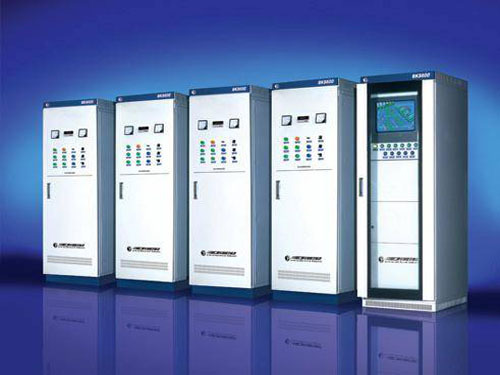
In July and August this year, the tourism, catering, accommodation, shopping, and other service industries nationwide were booming, and the turnover continued to rise. However, in many media reports, the "low temperature" of the service industry has caused many concerns because it has brought about huge energy consumption, and all sectors of the society have begun to focus on energy conservation issues in the service industry.
"Low temperature" became a habit, and "electric tiger" raged
Yesterday, the reporter came to a star hotel survey, as soon as the day is not a hot weather, the temperature of the lobby air conditioning is still 18 degrees. The manager of the lobby said, “The temperature will increase. The customer will think that the grade is not high enough, the service is not good, and the crowd is difficult to adjust. In desperation, the temperature can only be lowered again and again.†The same is true for large shopping malls and hotels visited by reporters. Said, "This year's high temperature makes electricity and water charges more than in previous years, especially the opening of air-conditioning has produced a huge amount of electricity, people can not eat too much."
In response, the reporter interviewed experts in the air-conditioning industry, and experts said that “the traffic volume in the service industry is large. In order to meet the cool demand of most people, the temperature of air conditioners is generally lowered, and the temperature is lowered by 1 degree to increase by 6%-8. % of energy consumption; especially high energy consumption of central air conditioning, consumption is greater, is a veritable electric tiger."
Central air-conditioning becomes the focus of energy conservation and consumption reduction
A set of data shows that in China's service industry, energy consumption accounts for a relatively low total social energy consumption, only about 20%, so it has become the main push for the development of major cities. However, from a closer look, the energy consumption of central air-conditioning in a shopping mall accounts for 50%-70%, and it has been rising year after year, even exceeding the power consumption of electrical consumables such as elevators and electric lights. In this situation, how to achieve energy-saving emission reduction in the service industry?
On August 11th, the "State Council's Opinions on Accelerating the Development of Energy-saving and Environmental Protection Industries" was formally proposed. For service-oriented industries, energy conservation and consumption reduction will become a major task. Experts in the HVAC industry pointed out that the “Opinions†first emphasized the national energy conservation transformation of existing buildings, and the second was that the new buildings should meet the “Green Building Standardsâ€, and an important part of achieving long-term energy saving lies in the popularization of energy-saving products. Applications include environmental protection and energy-saving products such as central air conditioning.
Energy-saving central air-conditioning helps green buildings
In view of the current use of energy-saving central air-conditioning in the service industry, the reporter telephone connected the head of Shenzhen Huishang Real Estate Headquarters Office Building Reconstruction Project. It is understood that this project is one of the 35 energy-saving demonstration projects selected by the Ministry of Construction and the National Development and Reform Commission, and Shenzhen is the only demonstration project that is both a renewable energy source and an old one. “The building uses Haier’s magnetic levitation central air conditioner, which has been in operation for 4 years now and can save 70% of energy compared with similar buildings. While ensuring comfortable use, it also greatly reduces the cost of electricity.â€
In fact, although the magnetic levitation central air conditioner has not been widely used in China, it has been widely used in the world. The penetration rate of magnetic levitation central air-conditioning in Australia has reached 40%. Under the stringent carbon tax standard, a magnetic levitation central air-conditioner with a service life of up to 20 years can achieve 50% energy saving. In China, only a Haier company exported magnetic maglev central air-conditioners overseas, breaking the technical barrier monopolized by overseas companies.
At present, real estate developers in many domestic service industries have taken note of the necessity of green building and have consciously chosen energy-efficient central air-conditioning in their design. As of June of this year, there are 1,014 green energy projects that have passed national and local Ministry of Construction accreditation, and this green trend will further accelerate. “From an energy-saving perspective, whether it is an existing building or a newly-built building, if energy conservation is to be achieved, it will be inevitable for service-oriented industries to select energy-efficient central air-conditioning,†said the expert.
[OEM]Maskking
Shenzhen E-wisdom Network Technology Co., Ltd. , https://www.globale-wisdom.com